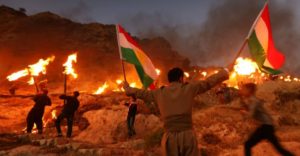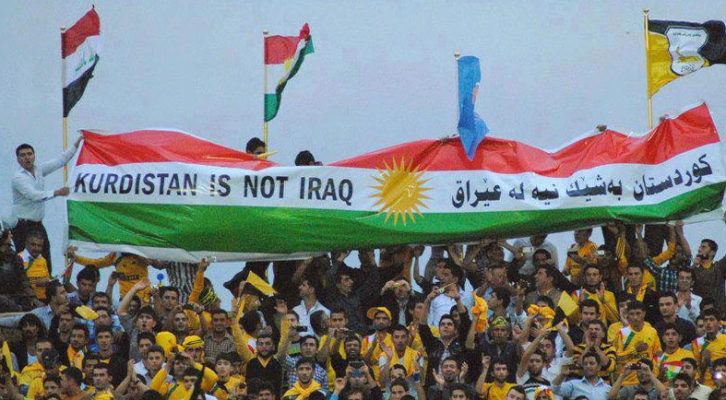It is not a mystery that all eyes are going to be turned on the residents of Kurdish-controlled areas in Northern Iraq as they are preparing to vote on 25 September in a referendum on their preference for the future of the Kurdistan Region of Iraq (KRI), a semi-autonomous region within Iraq’s current borders.
A referendum that holds a lot of speculation about the future of the region and its geopolitical consequences.
Most analysts’ reports consider that Iran and Turkey will oppose radically to the referendum that obviously won’t deliver independence right away but will be an impetus to advance Kurdish territorial demands short of independence.
Nevertheless, if we dig deep into the facts, both Turkey and Iran have been allied with Kurdistan Regional Government (KRG) and its president Masoud Barzani.
Since its conception, KRG has not opposed a single time when Turkish fighters bombed on several occasions the Kurdistan Workers’ Party (PKK) inside its territories. Just this month, Turkish jets killed 3 PKK members in northern Iraq in Zap area.
On the second hand, an alliance between Turkey and KRG serve both the parties as Iraqi Kurdistan serves a buffer against Iranian influence in the region.
After the fall of Saddam, Iran’s strategical plan for a ‘Shia Crescent’ started to take shape under the government of Nouri Malaki who created a new Constitution for the country that completely marginalized Iraqi Sunnis. As long as KRG accepted that Iraq serves a route liaison between Iran and the Lebanese Shia party Hezbollah, neither Iran nor the Federal Iraqi government had a problem with KRG, especially that both cannot afford to open war on a new front.

So what are the cards that the Kurds can use to get its neighbors favor in regard to gaining their independence in the future?
When Saddam Hussein was still in power, his regime forced Turkmen to leave the oil-rich Kirkuk and replaced them with Sunni tribes.
After the fall of the Baath regime, Kurds and some Turkmen gained back Kirkuk and they are now well aware that they need to negotiate well on the distribution of its wealth in exchange for their independence.
The US and European policies in the region have shown both Arabs and Kurds that they are not reliable forces and that they will only do their interest in their region.
The only enemy that seems to be common to all these major forces is the Islamic State of Iraq and the Levant (ISIS). While most of ISIS fighters in Syria are foreigners, it’s a known fact that it is not the case in Iraq. The frustrating situation of Iraqi Sunnis pushed them to join the Islamic Army that was created back then by Izzat Ibrahim Al Doury, former military commander and Secretary General of the National Command of the Baath Party.
The Islamic Army first gained notoriety when it kidnapped the famous French reporters George Malbrunot and Christian Chesnot but today ISIS is capable to destabilize big countries with its attacks and while Kurds were able to clean its major cities from ISIS, the following step will be negotiating with Sunni tribes as the majority of Kurds are Sunnis themselves and offer them alternatives other than ISIS, so it’s a win-win situation for everyone.
As the referendum is near, Kurds in Iraq must realize that the only handicap for their independence comes not from foreign forces but from other Kurdish Parties, especially PKK that might jeopardize the whole deal to get the bigger slice of the cake.
It would be wise if all the Kurdish political parties put their interest and conflicts aside in order to see how can they negotiate with the central government and the neighbor States their independence.
Christiane Waked. Risk Analyst. Former Press Attaché of the French Embassy to the UAE (2010-2015) also worked as linguist and analyst in the French Interior Ministry (2005-2008)







